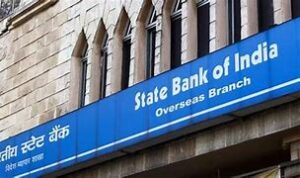Table of Contents
Introduction to Bank Relationship Manager Role
A Bank Relationship Manager is a crucial link between customers and financial institutions. They play a pivotal role in ensuring that customers’ financial needs are met and their banking experience is smooth. Relationship Managers build trust, offer personalized financial solutions, and promote various banking products.
Educational Pathways
Bachelor’s Degree in Finance or Related Field
Most Bank Relationship Manager positions require a bachelor’s degree, preferably in finance, economics, or a related field. This educational foundation provides a solid understanding of financial concepts, which is essential for guiding customers in their financial decisions.
Master’s Degree for Advancement
While a bachelor’s degree is a starting point, a master’s degree in business administration (MBA) or a related field can open doors to advanced positions. An MBA not only enhances financial knowledge but also hones leadership and management skills.
Developing Key Skills
Communication and Interpersonal Skills
Effective communication is at the heart of a Bank Relationship Manager’s role. Clear and concise communication helps in understanding customers’ needs and explaining complex financial products.
Financial Acumen and Analytical Skills
A strong grasp of financial concepts, market trends, and analytical skills are essential. Relationship Managers need to provide tailored financial solutions based on customers’ goals and risk appetite.
Sales and Negotiation Skills
Relationship Managers are also responsible for sales targets. The ability to negotiate and upsell banking products is vital for both personal success and the institution’s growth.
Gaining Relevant Experience
Internships and Entry-level Positions
Starting with internships or entry-level positions in banking can provide valuable exposure to the industry. This experience helps in understanding the nuances of banking operations and customer interactions.
Building a Strong Customer Service Background
Prior experience in customer service roles is highly regarded. This background equips individuals with the empathy and patience required to handle customer concerns effectively.
Understanding Banking Products and Services
Banking Products Knowledge
In-depth knowledge of banking products, from savings accounts to investment options, is a must. This knowledge empowers Relationship Managers to recommend suitable solutions.
Staying Updated with Industry Trends
Banking is a dynamic field with constantly evolving products and services. Relationship Managers need to stay updated to provide the latest information to customers.
Building a Network
Connecting with Colleagues and Superiors
Networking within the organization is beneficial for learning from experienced professionals and understanding different aspects of banking.
Networking in Financial Events
Attending seminars, conferences, and industry events expands your professional circle beyond the organization, opening avenues for growth.
Applying for Bank Relationship Manager Positions
Crafting a Targeted Resume
Highlighting your financial education, customer service experience, and interpersonal skills in your resume can make you stand out.
Nailing the Interview
Showcase your communication skills, problem-solving abilities, and enthusiasm for helping customers during the interview.
On-the-Job Responsibilities
Client Relationship Management
Develop and nurture strong relationships with customers, understanding their financial goals and offering appropriate solutions.
Providing Financial Advice and Solutions
Offer personalized financial advice, addressing customer needs such as investments, loans, and retirement planning.
Meeting Sales Targets
Achieving sales targets by promoting banking products and cross-selling services to existing customers.
Continuous Learning and Professional Development
Embracing Ongoing Training
The banking industry evolves rapidly. Engaging in continuous training ensures you are well-versed in the latest practices and technologies.
Pursuing Industry Recognized Certifications
Certifications like Certified Financial Planner (CFP) or Chartered Banker can enhance your credibility and skills.
Climbing the Career Ladder
Senior Relationship Manager Roles
With experience, Relationship Managers can move into senior roles where they handle high-value clients and complex financial solutions.
Moving into Leadership Positions
Skills gained as a Relationship Manager, such as team management and strategic thinking, make transitioning into leadership roles feasible.
Challenges and Rewards
Handling Customer Complaints
Not all interactions will be smooth. Managing customer complaints with patience and professionalism is a critical skill.
Job Satisfaction and Monetary Compensation
The role offers both intrinsic rewards from helping clients and attractive monetary compensation due to commission-based earnings.
Conclusion
Becoming a Bank Relationship Manager in India is a journey that requires education, skill development, networking, and dedication. It’s a rewarding career that combines finance, customer service, and relationship building, making it an excellent choice for those passionate about helping others achieve their financial goals.
FAQs
Q1- What qualifications are needed to become a Bank Relationship Manager?
A- A bachelor’s degree in finance or a closely related discipline is often required to work as a bank relationship manager. A master’s degree and relevant certifications can also enhance your prospects.
Q2- Can I become a Bank Relationship Manager without a finance background?
A- While a finance background is preferred, relevant customer service experience and strong interpersonal skills can also make you a competitive candidate.
Q3- How can I enhance my communication skills for this role?
A- Engaging in public speaking courses, practicing active listening, and seeking feedback can help improve your communication skills.
Q4- Is there a high earning potential in this career?
A- Yes, Bank Relationship Managers often have commission-based earnings, which, coupled with a base salary, can lead to a lucrative income.
Q5- What is the importance of networking in this field?
A- Networking helps you learn from experienced professionals, stay updated on industry trends, and create opportunities for career advancement.




